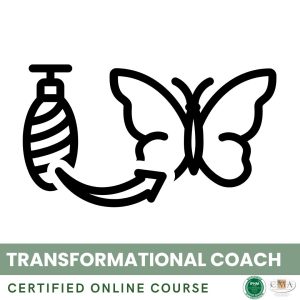Motivation and Accountability Techniques are essential tools in Divine Feminine Healing support. They help sustain the commitment and perseverance of your clients in their transformation process, despite obstacles and moments of doubt. As a practitioner, your role is to help them maintain their motivation and take responsibility for achieving their goals.
Motivation is the energy that drives us to act, to challenge ourselves and to persevere despite difficulties. It can be intrinsic, i.e., coming from within, from a deep desire to learn, create, or contribute. It can also be extrinsic, i.e., stimulated by external factors such as a reward, recognition, or social pressure. Ideally, one should cultivate intrinsic motivation, more sustainable and fulfilling, while occasionally using extrinsic levers.
To help your client maintain her motivation, you can explore with her what she is passionate about, what gives meaning to her life and what she wants to create, as we have seen in the submodule on values and life mission. You can help her reconnect with her deep “whys”, visualize the benefits of her efforts and celebrate each small victory. You can also encourage her to cultivate a growth mindset, seeing difficulties as learning opportunities rather than as failures.
Here are some motivation techniques you can suggest to your client:
– Positive visualization: imagine succeeding, savoring the benefits of her efforts, and expressing the best of herself. This creates a strong attraction and stimulates perseverance.
– Positive affirmations: regularly repeat encouraging and inspiring sentences to reprogram her mind and cultivate self-confidence. Examples: “I commit with joy and determination to achieving my goals”, “I am able to overcome all obstacles on my path”.
– Gratitude: Every day, note 3 things for which you are grateful, related to her goal or her life in general. This helps to focus on the positive, appreciate the path taken and maintain an optimistic attitude.
– Peer support: join or create a support group with people who share the same aspirations, to encourage each other, share challenges, and celebrate successes. The sense of belonging and collective kindness are powerful motivators.
– Rewards: set pleasant and meaningful rewards for each significant step reached, to stimulate desire and perseverance. This could be a massage, dinner at a good restaurant, a weekend in nature, etc.
Accountability is the feeling of being accountable for one’s commitments and actions, to oneself and to others. It’s a form of benevolent self-discipline that pushes us to honor our word and take action, even when we don’t feel like it. By developing her accountability, your client learns to take charge of her own transformation, to trust herself and to develop her integrity.
To reinforce your client’s accountability, you can help her clarify her commitments and make them public, for example by sharing them with you or with a trusted person. You can also suggest setting up a regular follow-up system, such as a weekly dashboard or a logbook, to evaluate her progress and adjust her actions. You can encourage her to set specific deadlines and to consider positive or negative consequences for keeping or not keeping her commitments.
Here are some accountability techniques you can suggest to your client:
– The commitment contract: write and sign a contract with oneself, specifying her goals, concrete commitments and expected consequences. This creates a strong anchor and a clear reference.
– The accountability partner: choose a trusted person (you, a friend, a member of the support group) to regularly share her progress, challenges, and next actions. Having to “report” to someone else strengthens motivation and responsibility.
– Public challenges: publicly commit to taking an action or achieving a goal, via social networks or among loved ones. The positive pressure from external perspectives can stimulate the desire to exceed expectations and to keep promises.
– Self-assessment: regularly take time to evaluate her progress, successes, and areas for improvement, in an honest and kind way. This develops self-awareness, responsibility, and the ability to adjust.
– Consequences: plan positive consequences for honoring her commitments (a reward, a celebration) and negative consequences for failing them (a donation to a cause, a chore). This strengthens determination and the sense of commitment.
Maintaining motivation and developing accountability is a daily training that requires consciousness, gentleness, and perseverance. As a practitioner, your role is to provide your client with a supportive and stimulating framework to cultivate these skills, to believe in her unconditionally, and to support her at every step.
Do not hesitate to share your own challenges and strategies in terms of motivation and accountability to inspire your client and build a relationship of authenticity and complicity. You can also suggest inspiring quotes, fun exercises, or symbolic rituals to nourish her determination and celebrate her successes. The key is to help her become her own ally, develop joyful discipline, and cultivate a deep sense of pride and self-confidence.
By integrating motivation and accountability techniques into your practice, you give your clients valuable tools to become the architects of their life and the creators of their destiny. You help them develop their inner strength, dare to take action and persevere joyfully and determinedly towards the realization of their dearest dreams. What an extraordinary gift to see them bloom and shine like this!
Key points:
– Motivation and accountability are essential to support clients’ commitment and perseverance in their transformation process.
– Motivation can be intrinsic (deep desire to learn, to create) or extrinsic (reward, recognition). The ideal is to cultivate intrinsic motivation.
– Motivation techniques: positive visualization, affirmations, gratitude, peer support, rewards.
– Accountability is the feeling of being accountable for one’s commitments to oneself and others. It develops self-discipline, self-confidence, and integrity.
– Accountability techniques: contract of commitment, accountability partner, public challenges, self-assessment, positive/negative consequences.
– The practitioner’s role is to provide a kind and stimulating framework, believe in her client, and encourage her at every step.
– Sharing one’s own challenges and strategies in terms of motivation and accountability inspires the client and creates an authentic relationship.
– Integrating these techniques helps clients become architects of their life, develop their inner power and achieve their dreams.
👉 To download docx (Editable) file click here : Click here
👉 To download PDF file click here : Click here
👉 To download MP3 file click here : Click here







